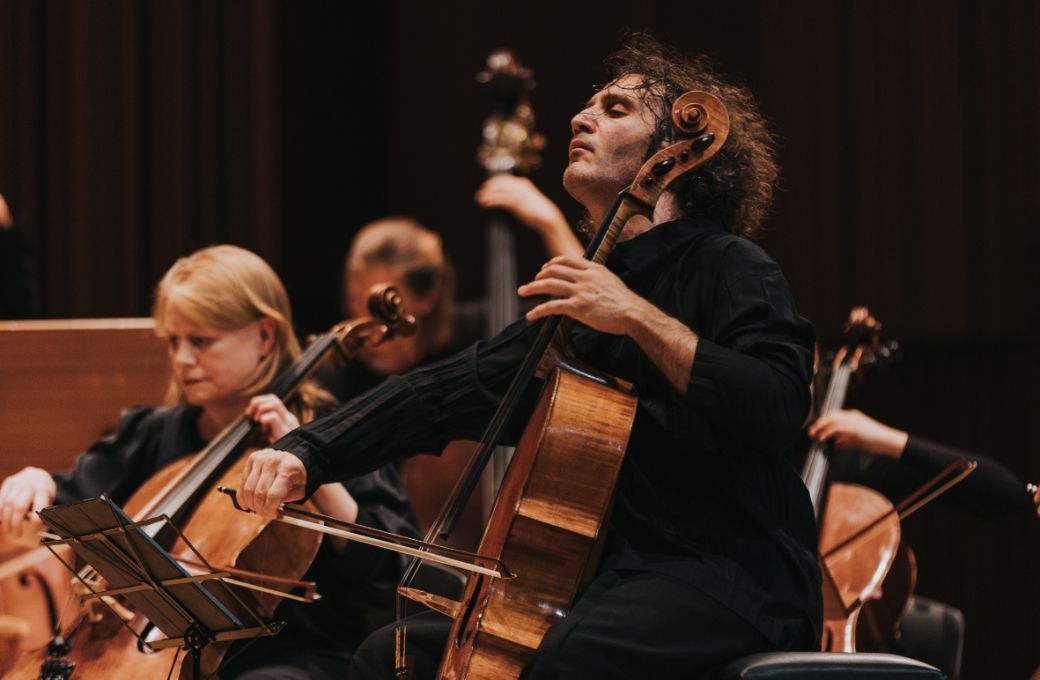Even 15 years ago it would have been out of the ordinary to encounter CPE Bach’s name on a concert programme rather than a CD or academic article. Not so any longer, when the profligate oddness of Johann Sebastian’s most talented son is assimilated and celebrated by musicians beyond a rarefied Early Music circle.

Without sight of the score, I couldn’t say how much abrasive invention in the Cello Concerto in A minor, Wq170, was the composer’s own work, and how much the supervention of editors and performers. From the visceral energy of the Munich Chamber Orchestra’s performance at the Istanbul Music Festival, led from the cello by Nicolas Altstaedt, it seemed that a good deal of imaginative recreation had gone into mining the most extreme contrasts of rhetoric and colour from the score.
Altstaedt’s beseeching cantabile in the slow movement tapped into the Orpheus and the Furies trope familiar from Beethoven’s Fourth Piano Concerto. The finale took the 90-degree turns of CPE’s mind on two wheels. Exhilarating stuff, though a suite of five Transylvanian Dances by Sándor Veress afforded relief: however spicy the harmonies or bumpy the folk metres, Veress at least writes in straight or curving lines rather than right angles.
Now seated with his fellow cellists as a first among not-quite-equals, Altstaedt shared a delicate balance of power with the Munich CO’s leader. The slow movement drew from the strings a depth of sonority beyond what could have been expected from their modest numbers. There lingered, though, a nocturnal chill in the air, not just from the edgy, Bartók-lite harmony but the tight, low-vibrato base of the tonal canvas.
Before giving us the real deal, as it were, Altstaedt resumed centre stage for the Cello Concerto written in 1978 by the Georgian composer Vaja Azarashvili. Postdating the death of Shostakovich by just a few years, the concerto shares a good deal (too much?) of rhetorical similarities with the Russian composer’s late quartets – the yearning cantilena writing we expect from any cello concerto, interrupted by furioso scrubbing that was already showing its age almost 50 years ago.
The cellist forsook his instrument for Bartók’s Divertimento for Strings, leading a tightly sprung account only marginally inhibited at the outset by Altstaedt’s highly gestural conducting technique. Gathering momentum and conviction through its course, the performance illuminated a stylistic variety within the Divertimento that bears comparison with the Tallis Fantasia of Vaughan Williams for its dialogue between the past and their present, antique hymns with muscular modernity.
The İş Sanat hall is an unlikely modern treasure within Istanbul’s plethora of cultural venues, buried in the business district and within a mixed-purpose cultural and business centre not unlike Kings Place in London. The omnipresent Atatürk shines benignly on from a gilded vantage point on a side wall, while downstairs a retrospective of Zeki Faik İzer makes an unobtrusive but instructive tribute to one of Turkey’s most productive mid-century modern artists. Just as Bartók and Veress take on new vitality in a Turkish context which shares many cultural points of reference, İzer seems to gather up familiar French influences (Cézanne, Picasso and so on) and make them his own; nothing feels foreign to Istanbul.
Peter's press trip was funded by the Istanbul Music Festival.


